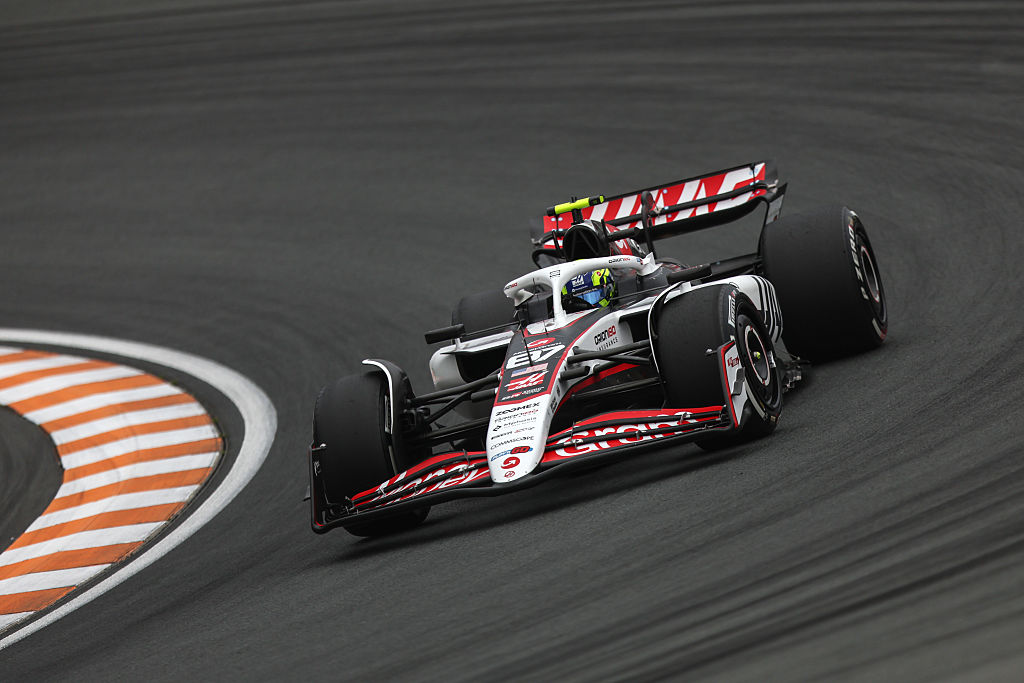Ollie Bearman’s Remarkable Performance at the Dutch Grand Prix: A Closer Look at Haas F1 Team’s Journey
In the recent Dutch Grand Prix, Ollie Bearman achieved a significant milestone by finishing in sixth place, despite starting from the pit lane. This impressive result follows a challenging qualifying session where Bearman found himself last among the drivers who set times in Q1. His teammate, Esteban Ocon, managed to qualify just ahead of him in the 18th position. The decision made by the Haas F1 team to replace Bearman’s engine prior to the race proved to be a pivotal moment in his performance.
Race Strategy and Execution
Bearman’s race strategy involved a lengthy stint on hard tires, which lasted for 53 laps. The early part of the race was characterized by a cautious approach, but the introduction of a Safety Car provided an unexpected opportunity to make a strategic pit stop without losing time. This turn of events played a crucial role in helping Bearman climb the ranks and ultimately secure a spot in the top six.
Reflecting on his race experience, Bearman noted the element of luck involved in his success. "A long time coming for sure," he expressed. "Definitely lucky, but if you start from the pit lane you need a bit of luck to get up there." He acknowledged the challenges faced during the race, particularly in managing tire temperatures after each Safety Car period. As the tread wore down, maintaining the right temperature became increasingly difficult, adding an extra layer of complexity to his performance.
The DRS (Drag Reduction System) played a vital role in Bearman’s strategy. He spent significant portions of the race in DRS zones, initially battling with Gabriel Bortoleto before focusing on Ocon. While DRS is advantageous for enhancing speed, Bearman recognized that it could also lead to increased tire wear, especially on the front tires. "I was really holding on for dear life at the end, but we worked it out," he stated, highlighting the fine balance between speed and tire management.
Understanding Team Dynamics and Performance
Bearman’s sixth-place finish was a welcome return to form after a series of disappointing results, including four 11th-place finishes in his previous five races. He emphasized the need for the Haas team to analyze their performance, particularly regarding the challenges faced during qualifying. “It’s nice, and I think we deserved a bit of luck. By the same token, there’s still a few things this weekend that we need to understand as a team,” Bearman remarked.
The discrepancies in performance observed during Free Practice 3 (FP3) and qualifying were particularly concerning. Bearman pointed out that the team’s performance varied significantly between the hard and soft tire compounds, suggesting that more in-depth analysis is necessary to identify the root causes of their struggles. "I think as a team we need some more rallying together and more hard work, but we’re getting there,” he added, indicating a commitment to continuous improvement.
Team Principal’s Perspective
Ayao Komatsu, the team principal of Haas F1, shared his insights on the team’s performance throughout the weekend. His frustration with the results from qualifying was palpable, but he was quick to commend the team’s resilience on race day. Both Bearman and Ocon managed to secure points, with Ocon finishing in 10th place, showcasing the team’s ability to adapt and respond effectively to the challenges presented during the race.
Komatsu expressed pride in the collective effort exhibited by the team, particularly following a tough qualifying session. "From starting P18 and in the pit lane, the chances were against us, but you can never give up," he stated. This sentiment reflects the tenacity and determination that the Haas team embodies, emphasizing the importance of maintaining focus and composure under pressure.
The strategic decisions made during the race, particularly regarding tire choices and safety car management, were crucial to their success. Komatsu noted, "We started on the hard compound, and the first safety car timing was completely against us," underscoring the unpredictability of race conditions. However, the team’s ability to remain calm and execute their strategy effectively allowed them to maximize their potential in the race.
Lessons Learned and Future Aspirations
While Bearman’s performance was undoubtedly a highlight, the team recognizes that there is still much work to be done. The analysis of their performance, particularly during qualifying and FP3, will be essential in identifying areas for improvement. Bearman acknowledged, "I’m also working on my side at putting in cleaner performances and giving them an easier life as well," highlighting his commitment to enhancing his own contributions to the team’s success.
The Haas team’s performance in the Dutch Grand Prix serves as a valuable learning experience. It demonstrates the importance of adaptability and teamwork in the face of adversity. As they move forward, the focus will be on refining their strategies and ensuring that both drivers are equipped to perform at their best.
Conclusion
Ollie Bearman’s sixth-place finish at the Dutch Grand Prix is a testament to his resilience and the strategic acumen of the Haas F1 team. Despite the challenges faced throughout the weekend, the team’s ability to adapt and respond effectively allowed them to achieve a commendable result. As they continue to analyze their performance and work towards improvement, the foundations for future success are being laid. With a commitment to teamwork and a focus on refining their strategies, the Haas F1 team is poised for continued growth and achievement in the competitive world of Formula 1 racing.
